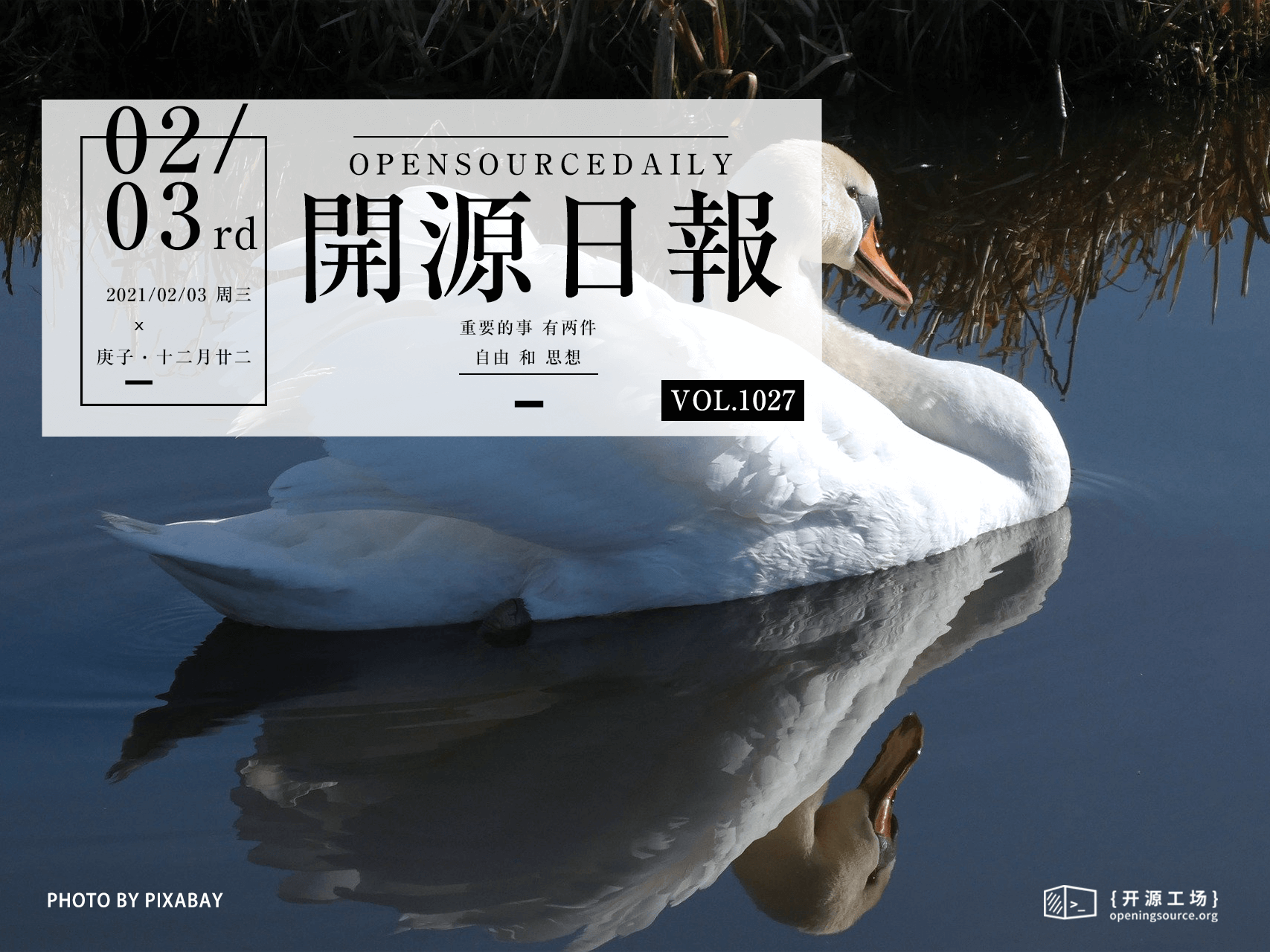今日推荐开源项目:《GitHub Actions Virtual Environments》
今日推荐英文原文:《If We Fix Our Media, Can We Fix Ourselves?》

今日推荐开源项目:《GitHub Actions Virtual Environments》传送门:项目链接
推荐理由:GitHub Action 是 GitHub 于 2018 年 10 月推出的一个 CI\CD 服务。该项目包含了运行 GitHub Action 的虚拟环境的源代码和镜像。
今日推荐英文原文:《If We Fix Our Media, Can We Fix Ourselves?》作者:Colin Horgan
原文链接:https://cfhorgan.medium.com/if-we-fix-our-media-can-we-fix-ourselves-ce2486682283
推荐理由:本文探讨了美国的现代媒体(电视、互联网)和社交平台对社会的深刻影响。我们将媒体视为信息渠道,但同时,媒体传递的信息正是媒体本身对人类事物的影响。
If We Fix Our Media, Can We Fix Ourselves?
Regulating media content isn’t going to solve our problems — the trouble lies deeper
It feels like we dodged something — at least for now. For all the wild events in recent weeks, it feels like they could have been wilder. It’s tempting to look at the January 6 mob invasion of the Capitol in Washington, D.C. as the culmination of a period we’ve now left, as a collective experience that’s ended. This is unlikely. Instead of asking “what happened?” we should ask “what’s happening?”Examining media isn’t the only way to answer that question, but it feels like a good place to start, not least because Trump was not just a creation of late-20th and early-21st Century media, but an avatar for it. This was true in a strict sense, in that he was an exemplar of the worst tendencies of TV — its exaggerations and simplifications, its pandering to the lowest common denominator, its casual favouring of emotion over facts or of reaction over reason, and so on.
Financial Times columnist Janan Ganesh last week lamented the “debasement” of TV news that began in the late 1990s as the true point of “identifiable rupture in public civility,” the long-term effects of which we are only now coming to terms with. “Perhaps the strife of our day is traceable to a new means of communication. The error is to cite the most modish one,” Ganesh wrote. “Just as likely, we are still processing an expansion of TV news that is not that much older.”
It’s an interesting thought, but maybe an incomplete one. In the end, it’s not sufficient to truly contextualize the Trump era, in that it assumes a difference between the TV of the 1990s and that of previous years. But the problem might not lie with content. More likely, we’re not experiencing the impact of one kind of TV, but that of TV itself. That is, we’re living through a shift in human experience embedded in the medium from its genesis, rather than one generated from a form of its content. It seems more likely that the qualities of ‘debased’ TV Ganesh cites — the fabricated immediacy, the emotion and the histrionics — have actually been latent features of TV all along that simply took decades to be fully expressed.
But even that might be looking at things too narrowly. The impact of TV and, in subsequent years, the internet, is not limited to how it changes the behaviours it most frequently showcases, like discussion and debate becoming futile and toxic. We have to consider the implications of media much more broadly.
To borrow from Marshall McLuahn, the message of all media is action — they are “‘make happen’ agents.” Take TV or the internet, for example — we can refer to them separately, despite the fact that the former is increasingly also the latter. We like to think of these as information channels, ways in which we engage and learn about the world, but McLuhan would warn that’s to focus too closely on their content. McLuhan was clear that message of a medium is the impact it made on human affairs — “the personal and social consequences… [that] result from the new scale that is introduced into our affairs by each extension of ourselves, or by any new technology,” he wrote. In other words, the unanticipated consequences of humans using a new tool.
What action has TV and the internet prompted in us? What is it that they have changed? Among the social and personal consequences, surely, is our capacity for trust in one another and our collective institutions, which is declining. Both these forms of modern media carry a similar promise: they will bring the world to you, emphasis on you. Structured on profit (which you create), not information, they are media about and for the individual. The audience may be potentially vast, but how many people are engaged either with TV or internet at any given moment is irrelevant to the individual user. What matters is that you are there. You are the programmer, the time-keeper, the researcher, and the expert. Your tastes and your opinions are reinforced more and more narrowly — caught not so much an echo chamber as in a feedback loop.
Over time, the individualistic nature of thes media in form as much as content tell us that the only person you can really trust is yourself. That is to say, it is the individualistic form of media itself rather than the introduction of a specific kind of TV programming that’s more likely the source of a rupture in public civility, in that TV has fostered a culture of individual primacy rather than that of the community. Social platforms have pushed this to new extremes.
Where does this leave us? In the wake of the Trump years, replete as they were with toxic hearsay, falsehoods, and straight-up conspiracy, we’re now looking to reform our popular mass media by focusing on their capacity to curb the proliferation of content, specifically blatant mis- or disinformation and conspiracy. Certainly, content drives action in the short term. Social platforms in particular are, at their most effective, tools for rapid message dissemination and organization. But we may quickly discover that this type of reform either doesn’t work at all or doesn’t work for long. We will likely find that the messages our mass media helps spread are not where its power truly lies. Instead, its power is in delivery, which is structural and much more difficult to contend with. That is, it always give the audience what it wants.
下载开源日报APP:https://openingsource.org/2579/
加入我们:https://openingsource.org/about/join/
关注我们:https://openingsource.org/about/love/
